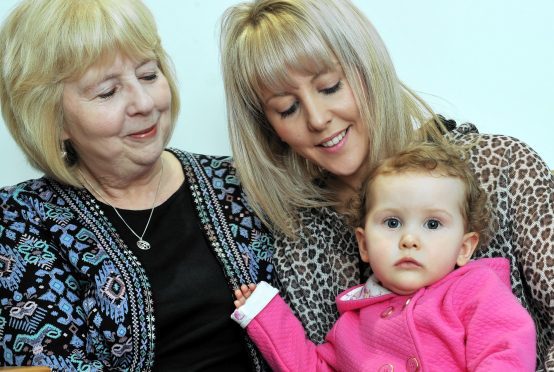A Lossiemouth woman is determined to highlight the deadly heart condition which claimed her father’s life when he was just 40.
Katherine Robertson only discovered she had familial hypercholesterolaemia (FH) last autumn, after her older sister was diagnosed with it.
The inherited condition can cause fatal heart attacks at a young age if it is not discovered and treated in time.
Mrs Robertson’s father, who appeared “very healthy”, died suddenly when swimming – the latest in a series of early deaths in his family.
Her sister, Elfreide, was diagnosed with FH after doctors suggested she attend a special clinic to have her high cholesterol examined.
Mrs Robertson believes that if it hadn’t been for such a service being available locally, she would still be unaware of the time-bomb condition which has affected generations of her family.
The 60-year-old’s children have both been identified as having FH, and her 14-month-old granddaughter is poised to undergo testing for it.
The retired Milne’s High School music teacher is now hoping her awareness appeal strikes a chord with people across the north-east.
Mrs Robertson said: “Knowing that I have this isn’t good, but it’s a lot better than not knowing.
“I want people to become more aware of it and get their cholesterol checked – so many people could be living with it but are totally unaware.”
Mrs Robertson’s daughter, Sarah Souter, has FH and now worries that daughter Molly is also at risk .
The 30-year-old added: “A lot of folk my age just wouldn’t think about it, but thankfully we can be treated.”
Statin medication can help increase the life expectancy of FH sufferers. But the condition causes abnormally high levels of cholesterol in sufferers’ blood, meaning they are at greater risk of having a heart attack.
People with FH can die as young as their 20s without treatment, and their children have a 50% chance of inheriting it.
One in every 250 people in Scotland is suspected of having FH, and the British Heart Foundation believes there are more than 20,000 sufferers in this country.
But the charity said people were “needlessly” dying because they hadn’t been identified as having it.
